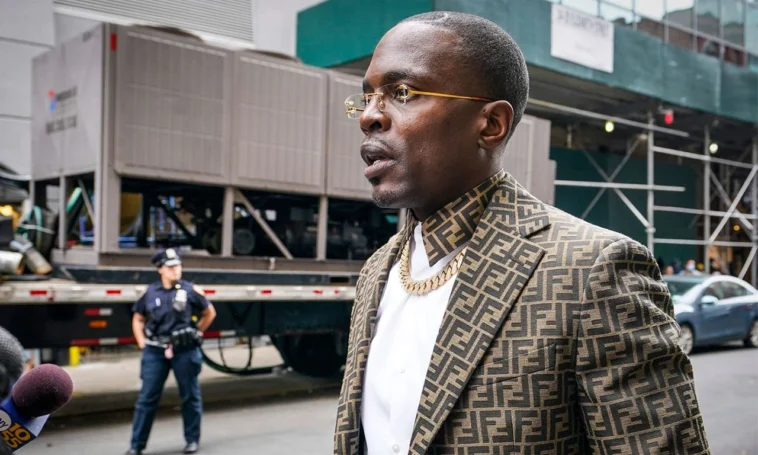Brooklyn Preacher Convicted of Wire Fraud and Attempted Extortion.Lamor Miller-Whitehead, a Brooklyn pastor known for his lavish lifestyle and purported ties to New York City’s elite, was convicted of wire fraud, attempted extortion, and lying to federal officials on Monday. After a Manhattan federal court trial, the preacher’s verdict contrasts his public demeanor with his illegal operations.
Miller-Whitehead, 47, was charged with five counts of fraud caused by greed and a desire to maintain his opulent lifestyle. He was accused of scamming a parishioner of $90,000 in retirement savings by promising to help with real estate and property purchases but spending it on luxury items.
“Evidence against her client didn’t support the charges.” – Lamor Miller-Whitehead Attorney Dawn Florio
The pastor was also indicted for extorting a businessman by using his contacts to city leaders, including Mayor Eric Adams, for financial favors and real estate investments. Miller-Whitehead’s claims of power and affiliation were baseless and used to manipulate and exploit his victims, according to prosecutors.
Miller-Whitehead’s attorney, Dawn Florio, said she will appeal the conviction since the trial evidence didn’t support the allegations. Despite her claims, the preacher was convicted after a comprehensive investigation and prosecution to hold him accountable for his deception.
Miller-Whitehead was famous for his lavish lifestyle, not only his religion. He owned a Rolls Royce and a $1.6 million Paramus, New Jersey, home. Records showed he owned Hartford residential buildings, demonstrating his wealth.
As Brooklyn’s borough president, Mayor Eric Adams’ contact with the preacher aroused questions about their relationship. Adams distanced himself from Miller-Whitehead after his legal issues, but the case showed the necessity of ethics and accountability even in public figures.
Miller-Whitehead’s sentencing is set for July 1, a crucial moment in his criminal case. Deceit and exploitation, especially in religious and communal leadership posts, have severe consequences, as the verdict shows.
Following Miller-Whitehead’s conviction, officials urge attention and transparency to avoid fraudulent schemes and false promises. The case emphasizes the necessity for strong monitoring and responsibility to prevent abuse and protect institutions and communities.
The conviction of Lamor Miller-Whitehead emphasizes the need to sustain ethical standards and resist fraud to ensure victim justice and offender accountability.
Following Miller-Whitehead’s conviction, issues arise about religious groups’ fraud rates and leaders’ need to protect trust and integrity. In religious societies, transparency and accountability are needed because charismatic persons put people’s trust and money at risk.
The preacher’s lavish lifestyle and apparent connections also highlight how riches and influence can cloud judgment and lead to deception and exploitation. The case cautions against placing too much trust in people and their promises.
The community struggles with Miller-Whitehead’s conduct and seeks justice as sentencing approaches. The verdict shows that law enforcement and prosecutors will find and prosecute fraud regardless of the perpetrator’s status.
Moving forward, the case emphasizes the need to avoid and address religious organization financial exploitation and fraud. Protecting congregants and religious organizations requires education, oversight, and responsibility.
In conclusion, Lamor Miller-Whitehead’s conviction for wire fraud and attempted extortion highlights the frequency of fraud and the need for religious leaders to conduct ethically. The case emphasizes transparency, responsibility, and vigilance to prevent exploitation and protect community trust and well-being.
The community is rigorous about keeping perpetrators accountable and securing justice for financial exploitation victims. As punishment approaches, Miller-Whitehead’s crimes ripple through the community, inspiring contemplation and confirming religious institutions’ commitment to integrity and ethics.




Join the Community and Be a Part of the Conversation
You must be logged in or registered to post a comment.